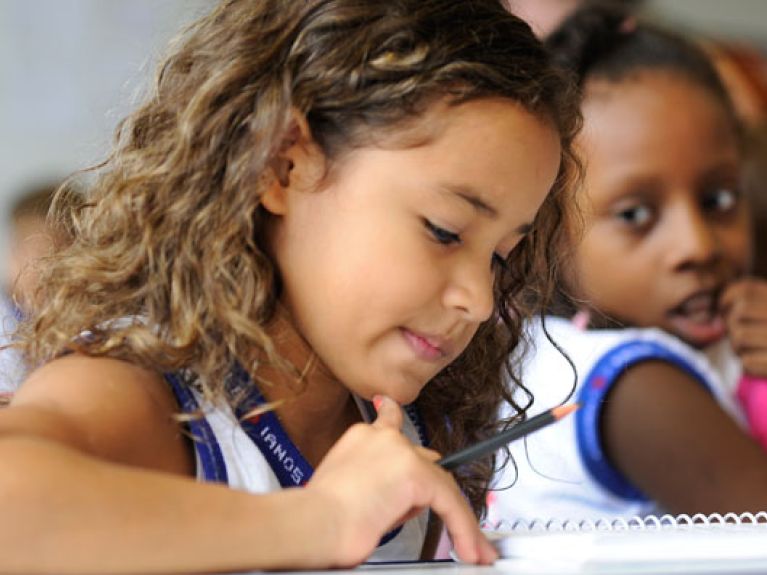German schools abroad
Three German schools abroad have won prizes in an IHK competition to find the best concepts.

On 13 May Maria Böhmer, Minister of State at the Federal Foreign Office, and Eric Schweitzer, President of the Association of German Chambers of Commerce and Industry (DIHK), awarded prizes in Berlin honouring special examples of the successful work of German schools abroad in a competition organised by the IHK (Chamber of Commerce and Industry).
1st place: Istanbul Lisesi – a bridge to Germany for the highly gifted
Students of the Istanbul Lisesi can study in Germany even without a taking the Abitur exam. A very special feature of this high school on the Bosporus is its cooperative arrangement with the Technical University (TU) Kaiserslautern. The Lisesi is a Turkish state school with a large German department; it practices a strict selection policy and focuses on children who are particularly gifted in mathematics and natural sciences. It is the only German schools abroadthat is a member of the top-class network of German MINT schools, which was build up and is run by the Association of the Mathematics and Natural Science Excellence Centre, or MINT-EC. However, students at the Istanbul Lisesi are also excellent at languages. Although most of the 900 students have no knowledge of German when they first go to this international school, most of them pass the German Abitur school-leaving exam after five years. After an introductory first project with the TU Kaiserslautern, students wanted the systematic support to continue at the university level. This led to an early and distance-study programme in mathematics, physics and electrical engineering/information technology. The talented MINT students work mainly on a distance-study basis with the help of apps or on-screen experiments and receive lecture scripts as PDF files. Using exercise sheets, they can process the same tasks as students whose courses involve compulsory attendance; they also participate in final examinations. Both at the school in Istanbul and at the TU they have specialist tutors who advise them via internet forums. www.istanbullisesi.net
2nd place: St. Kilian's German School Dublin – the “Green School”
It fits somehow: St. Kilian's German School on the Emerald Isle is particularly committed to a “Green School” environmental project. About 650 children, including 150 German students, attend the school in the small suburb of Dún Laoghaire in the Irish capital. It was founded in 1952, having developed out of an initiative to provide German language courses. The idea was to help boys and girls who had almost lost their native language to refresh this part of their culture. Today, St. Kilian's is an “encounter school” for children aged between 4 and 18 in the lively international melting pot of Dublin. It has been campaigning for environmental causes since 2012, and the ecological orientation is one of the school's important development objectives. Everyone gets involved, including the primary-school pupils. The children learn environmental awareness at the school, which has excellent waste-separation schemes and makes big efforts to save water and energy, even at school parties, where home-made music is played – unplugged. www.kilians.com
3rd place: German School Santiago – serving others
Learning for Life – this is no empty phrase at the German School in Santiago de Chile. The overall concept is one of tolerant and cosmopolitan people who think critically, act democratically and serve others. With a project called C.A.S.A. (Centro de Acción Social del Alemán) the international school, which was founded as early as 1891 and has a total of about 2,000 children and adolescents, attempts to promote precisely that. Since 2001, the students have been going out into the towns of the region outside the normal curriculum. In this way the boys and girls are confronted with social reality. And they work hard: together with local people they have built 50 so-called basic houses since 2011 in various regions of Chile to improve people's daily lives in what are often poor communities. www.dsstgo.cl

